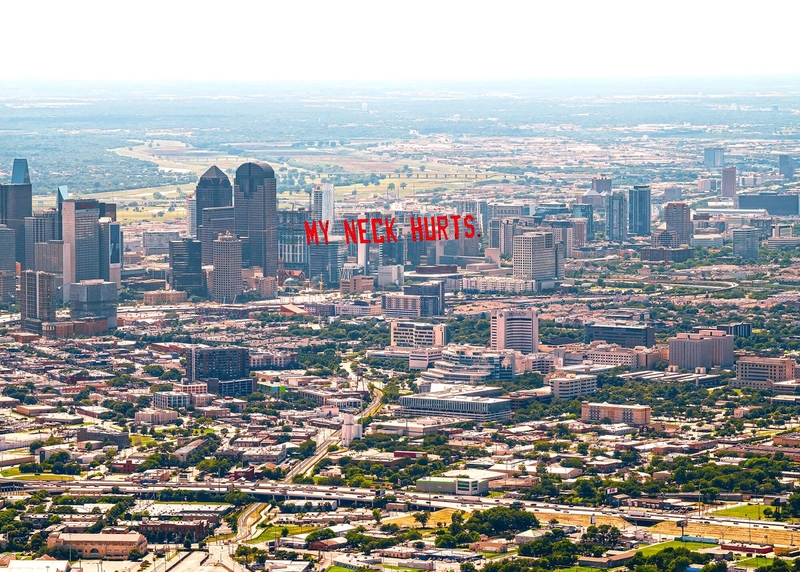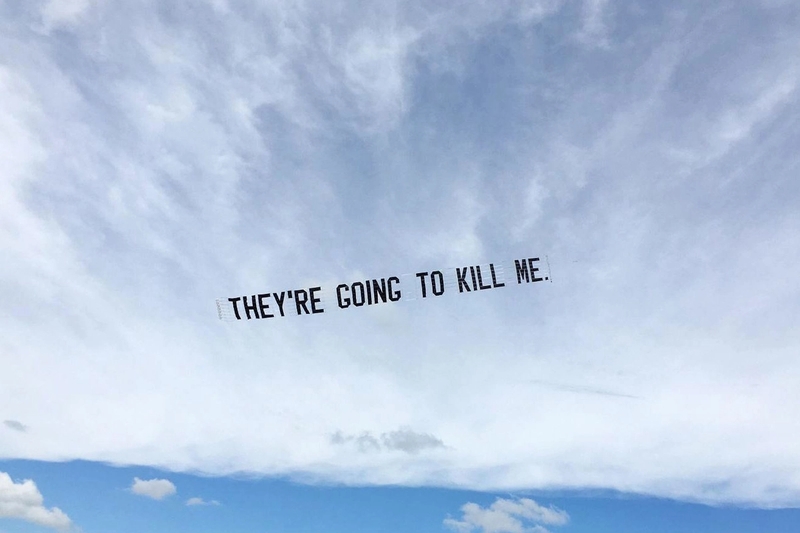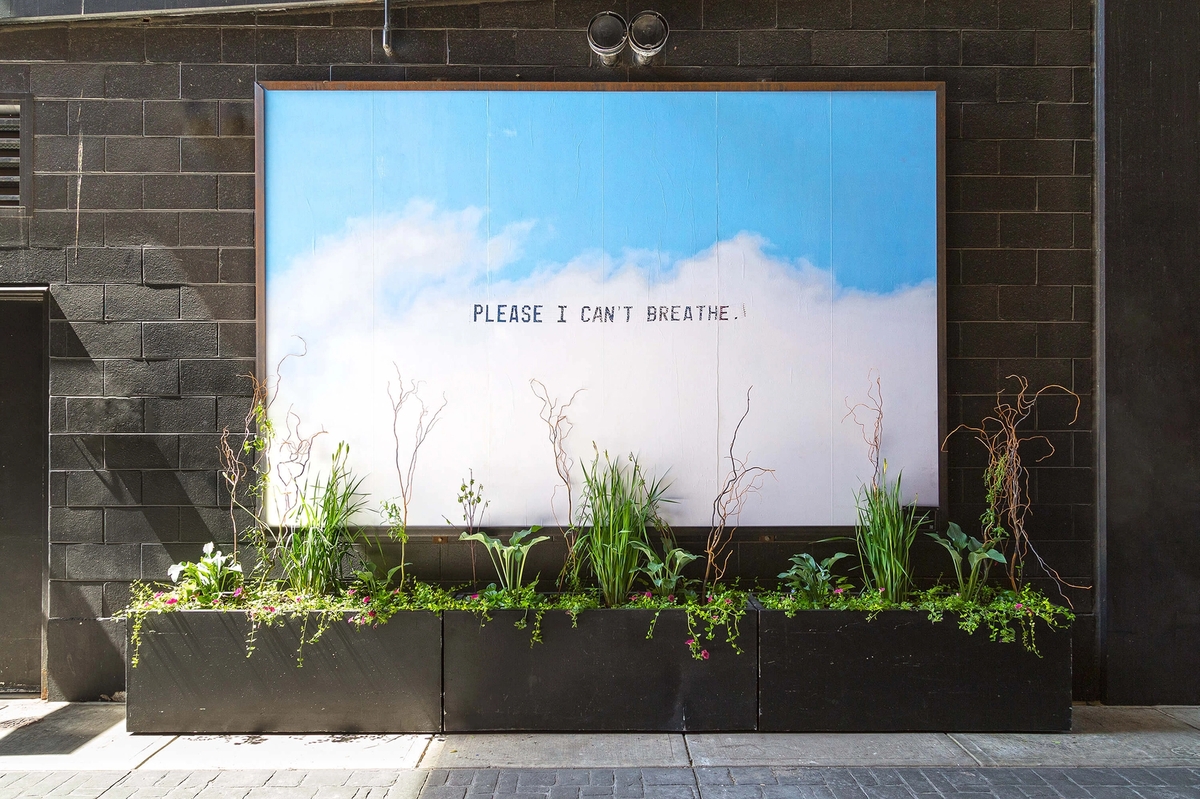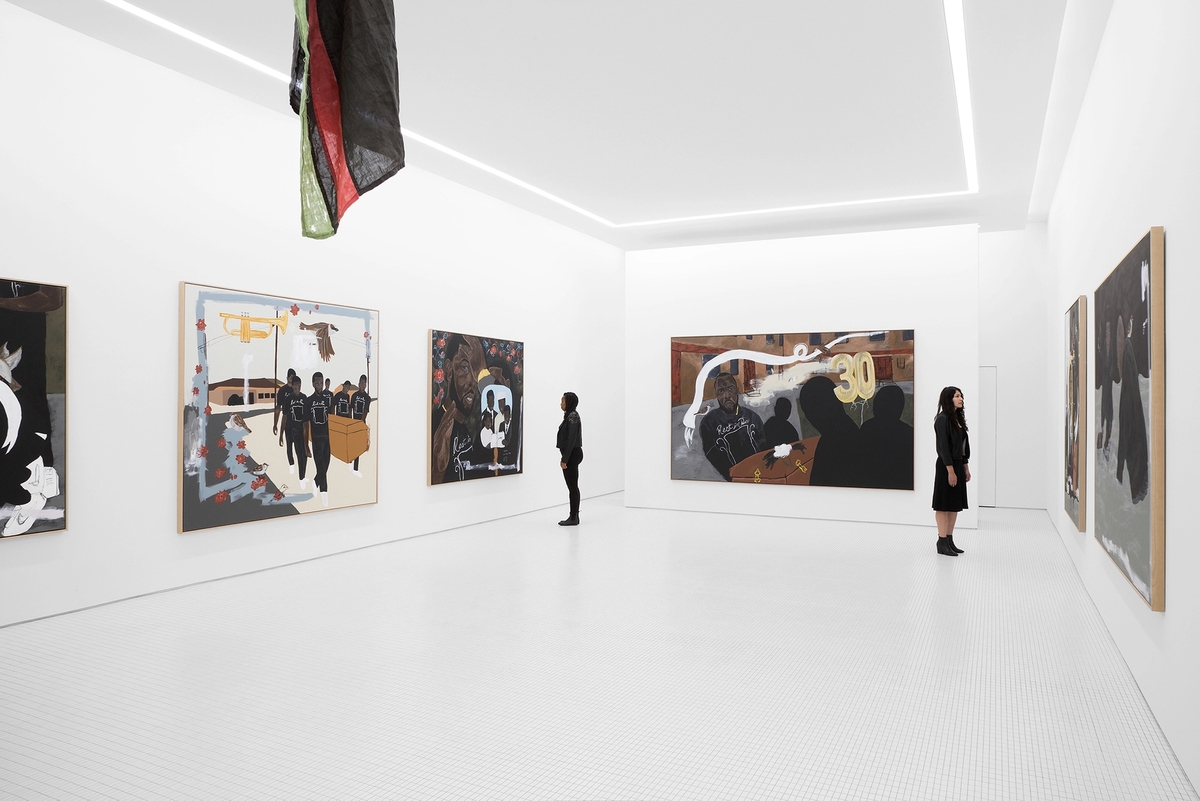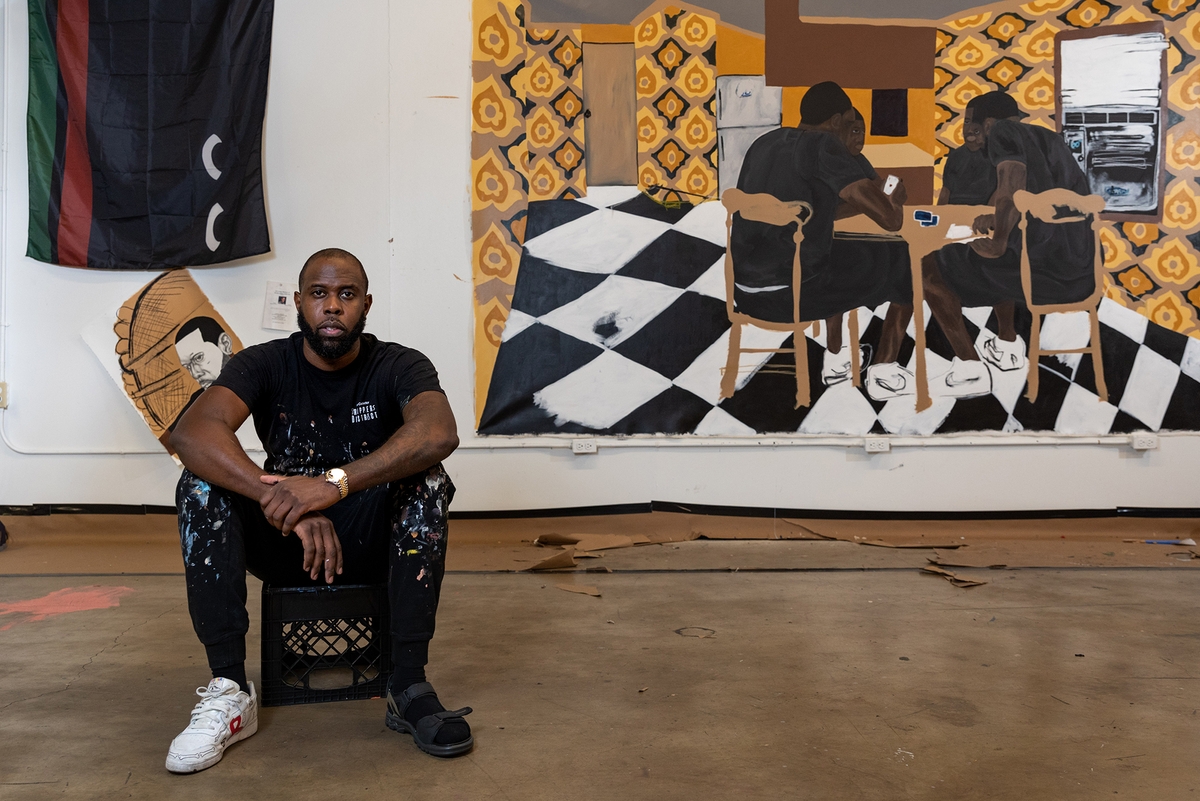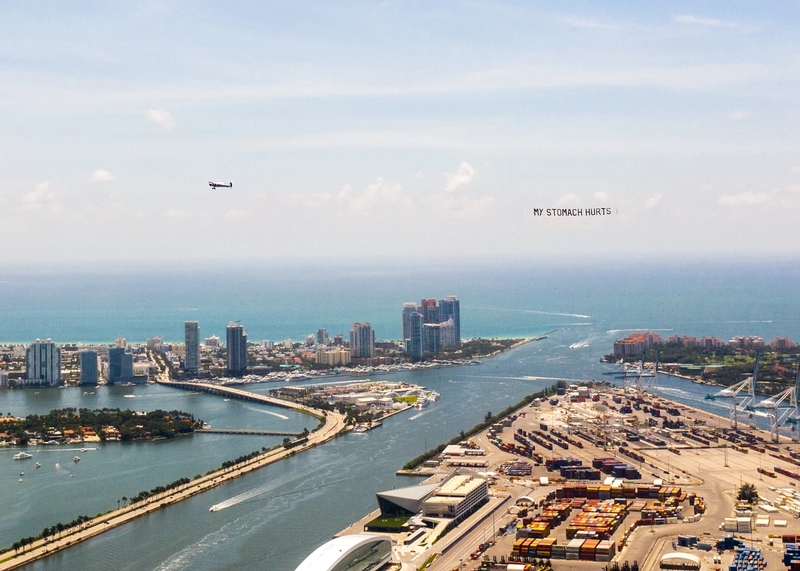
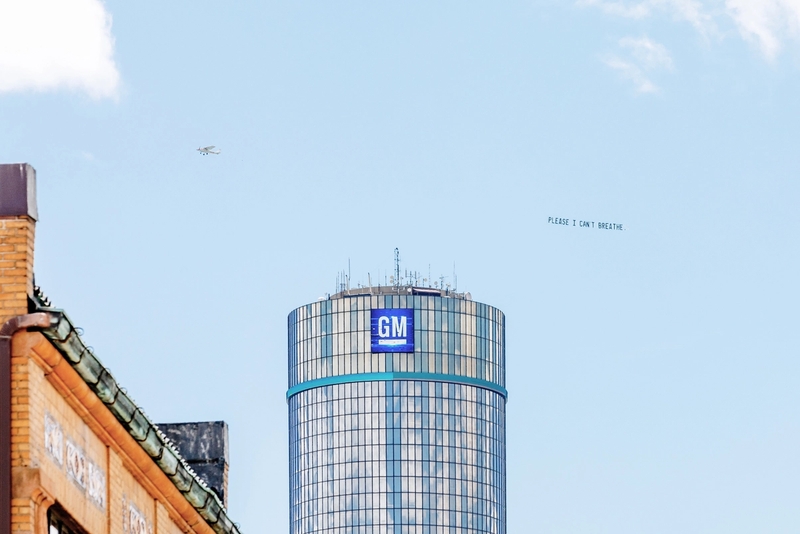
In response to the recent murder of George Floyd, Dallas-based artist Jammie Holmes, with the support of Library Street Collective, initiated a public demonstration across-five U.S. cities on Saturday, May 30 between the hours of 11:30am and 9pm EST. Airplanes with banners highlighting Floyd’s final words connected these cities in a national protest of police brutality against African Americans.
DETROIT: PLEASE I CAN’T BREATHE.
MIAMI: MY STOMACH HURTS.
DALLAS: MY NECK HURTS.
LOS ANGELES: EVERYTHING HURTS.
NEW YORK: THEY’RE GOING TO KILL ME.
This presentation was an act of social conscience meant to bring communities together in their shared incense at the inhumane treatment of American citizens. The deployment of Floyd’s last words in parts of its whole across the country underlines “a need for unity and the understanding that what happened to George Floyd is happening all over America”, says Holmes. An enduring culture of fear and hateful discrimination has only increased in its intensity since 2018, and a critical mass will no longer allow it to be ignored.
With this demonstration, Holmes hopes that people across the United States will use the outlets available to them to continue to demand change. His website includes a statement about THEY’RE GOING TO KILL ME. with links to sign petitions through change.org to support the families of the latest victims in their pursuit of justice, as well as for donations to Campaign Zero, Reclaim the Block and the families of George Floyd, Ahmaud Arbery, and Breonna Taylor.
The use of sky media to recount Floyd’s final words presents a contrast to the noise of digital media and employs a form of communication that is most often used by the privileged to announce sporting events, marriage proposals, or promote consumption. It is rarely used for political or social purposes - to exercise free speech - because it is an outlet unavailable to the poor and marginalized. He hopes that people will be reminded of the power we all have to be heard and that coming together behind a unified message - and breaking through the commotion and hate within social media platforms - is key for real change.
Like countless silenced and fearful young black men, Jammie Holmes has been the victim of police misconduct on a number of occasions in his life. An artist from Thibodaux, Louisiana, Holmes’ work tells the story of contemporary life for many black families in the Deep South. Growing up near the Mississippi River, the painter was surrounded by the social and economic consequences of America’s dark past, where reminders of slavery exist alongside labor union conflicts that have fluctuated in intensity since the Thibodaux Massacre of 1887. His presentation of simple moments of togetherness and joy within the black population that nurtures the culture of Louisiana has made him an advocate for his community. Holmes’ paintings incorporate portraiture, text, symbols, and objects rendered in an uncut style that mirrors a short transition from memory to canvas, and has created a number of powerful works on the subjects of racism and police brutality.
Says Holmes, “At some point, you will realize you can’t kill us all.”
Project Gallery

